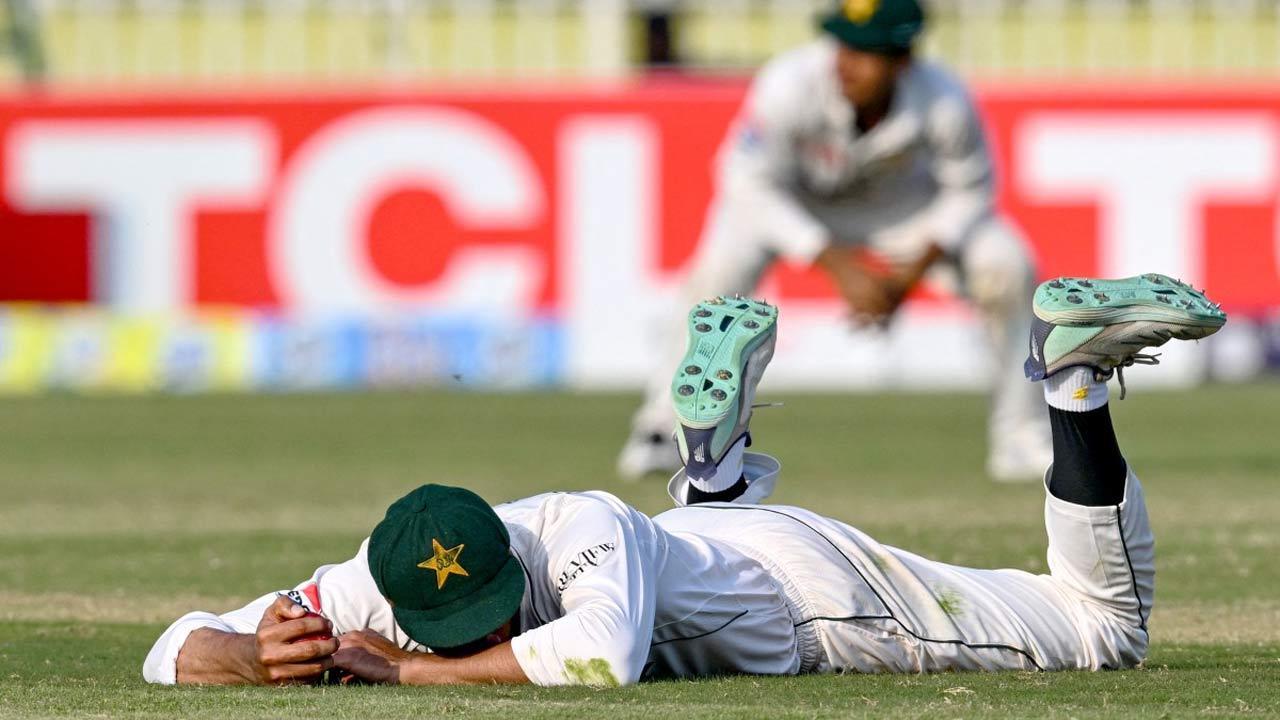PAK vs BAN: The very notion of Pakistan cricket being mercurial might captivate loyalists with its unpredictability, but it masks the deeper flaws that hinder their stability

Pakistan's captain Shan Masood reacts after dropping a catch during the third day of the second and last Test match. Pic/AFP
UNLOCK FULL ACCESS
Buy now to read the full story.
For Just ₹29/-
Already a member? Login
For any queries please contact us: E-mail: support@mid-day.com
 Subscribe today by clicking the link and stay updated with the latest news!" Click here!
Subscribe today by clicking the link and stay updated with the latest news!" Click here!








